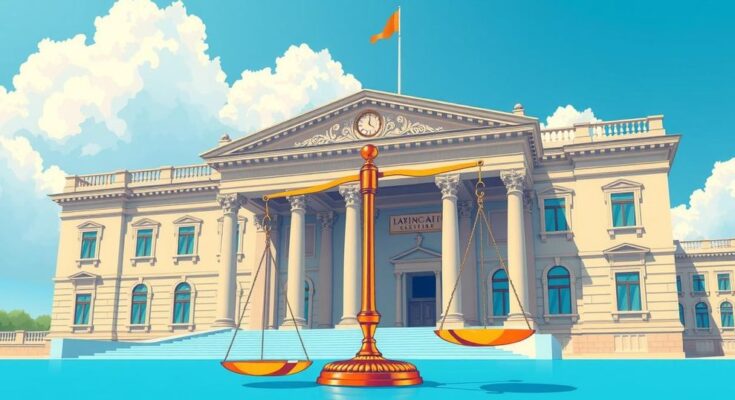Argentina’s Congress debated a crucial IMF deal aimed at stabilizing the nation’s finances. President Milei’s government supports it, but faces opposition within Congress. Milei’s austerity measures have sparked protests, adding pressure to secure legislative approval. The outcome of the vote will significantly influence Argentina’s economic stability.
Argentina’s Congress commenced its debate concerning a potential agreement with the International Monetary Fund (IMF) on Wednesday. This vote represents a crucial obstacle for Argentina as it endeavors to stabilize its financial situation. President Javier Milei’s government issued a decree earlier in the month supporting a new IMF program, which Congress may reject if both chambers disapprove the decree.
The nation is facing significant financial challenges, characterized by negative foreign currency reserves due to prolonged overspending, recurring currency crises, and defaults. Argentina holds the distinction of being the IMF’s largest borrower with 22 loan programs and is still servicing a $44 billion deal initiated in 2022. The administration argues that a new agreement is necessary to strengthen the central bank’s reserves and facilitate the reduction of capital controls imposed since 2019, which are viewed as impediments to business and investment.
Although President Milei’s libertarian party holds only a minor representation in Congress, he has successfully gained support from conservative and moderate factions for parts of his agenda. The administration remains optimistic about securing the necessary votes for the IMF decree. Notably, moderate Peronist lawmaker Miguel Pichetto expressed his cautious support, stating, “I support this though with a critical eye. I will vote in favor.”
Milei, who emerged as a political newcomer in the 2023 elections pledging to resolve the economic crises facing Argentina, has managed to reduce inflation and mitigate the fiscal deficit. However, he now confronts the formidable task of stimulating economic growth and replenishing governmental finances. The impending IMF deal represents a significant test of Milei’s capacity to garner legislative backing since he angered some legislators by pursuing the agreement through a presidential decree instead of a traditional congressional bill.
Simultaneously, Milei’s stringent austerity measures and cutbacks have led to rising poverty levels and prompted public protests, particularly among vulnerable senior citizens. Protests are anticipated outside Congress as the deliberations continue.
In summary, Argentina’s Congress is debating a crucial IMF deal that signifies a pivotal moment for the nation’s financial recovery. With President Javier Milei facing opposition to his approach, the potential impact of austerity measures poses risks to public sentiment. As the situation evolves, the outcome of the congressional vote will be instrumental in defining the country’s economic trajectory and stability moving forward.
Original Source: www.usnews.com




